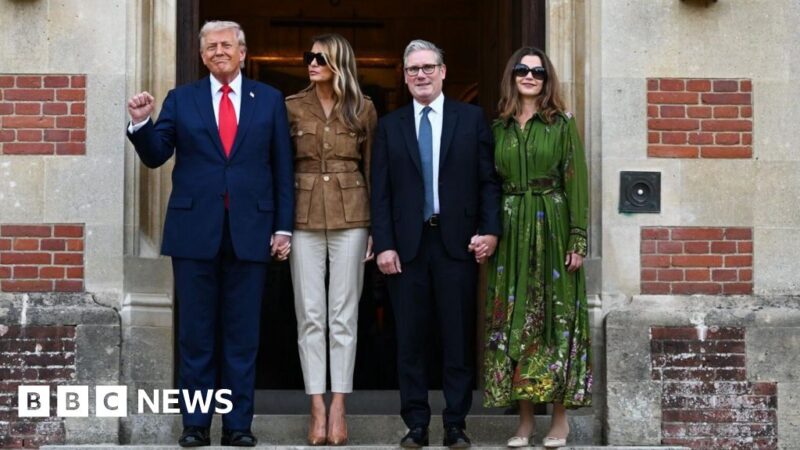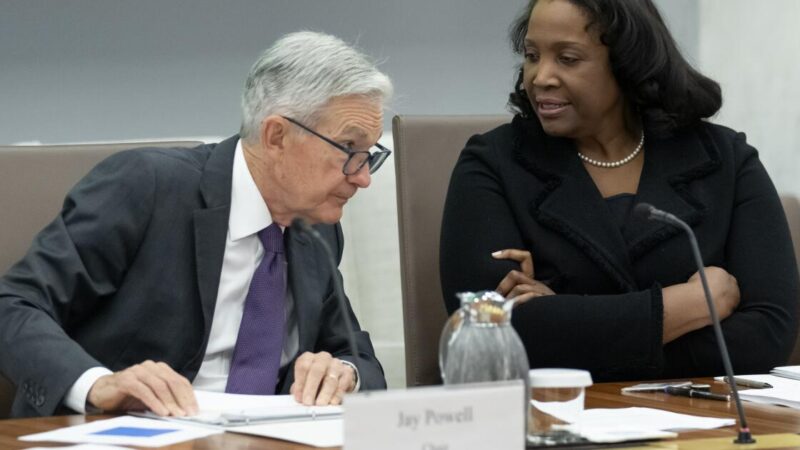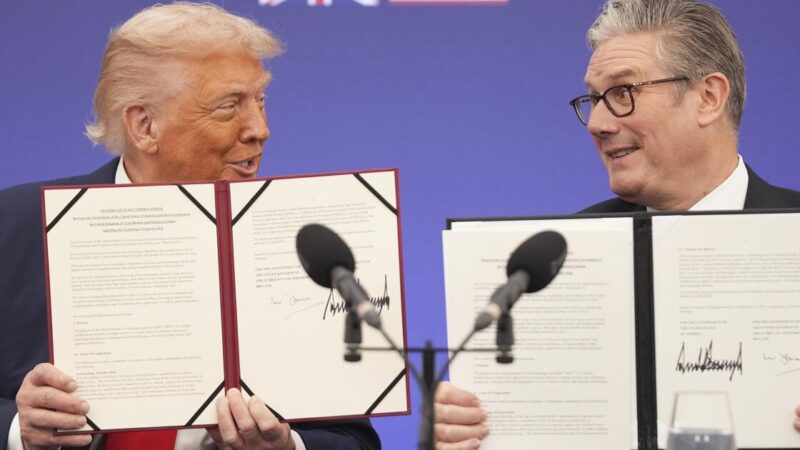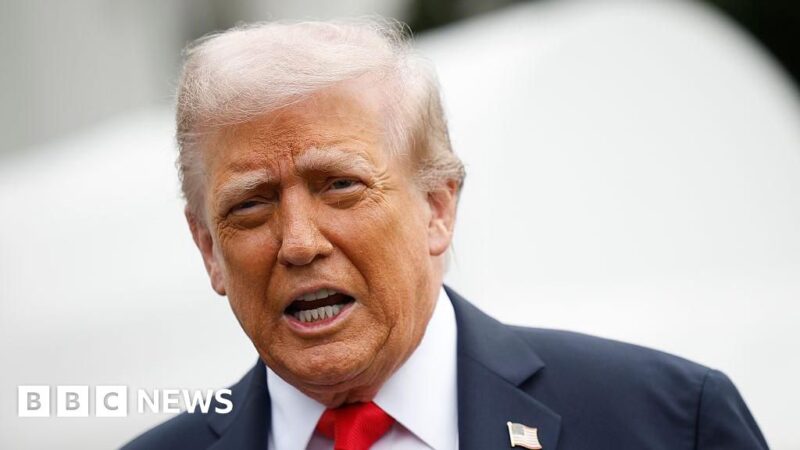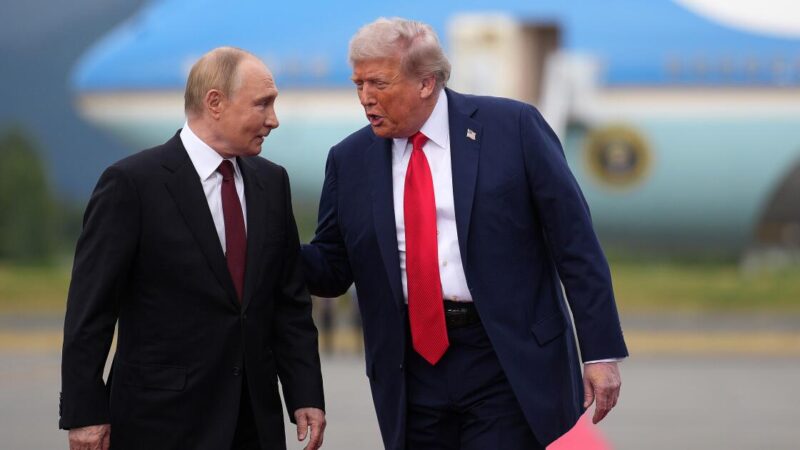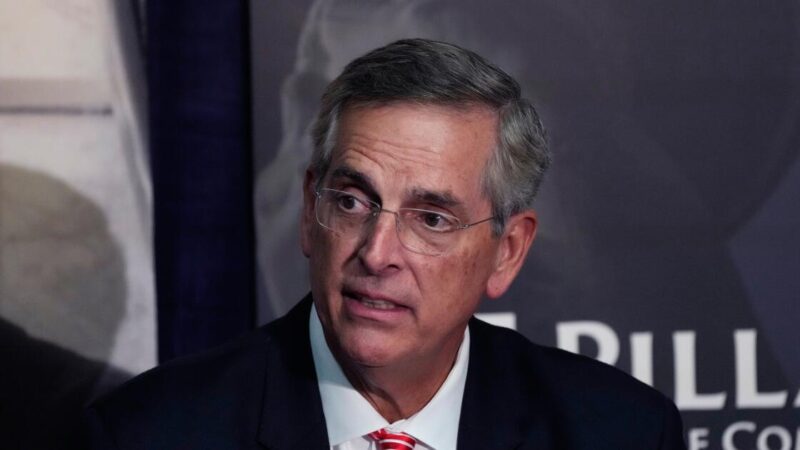Column: What makes Trump’s power grab different?
For many, the evidence is in: Donald Trump wants to be an autocrat. If you haven’t read an op-ed or heard a radio, TV or podcast commentator make that case, it’s probably because you’ve tried hard to avoid doing so. It would require virtually never watching cable news, including pro-Trump outlets, because there are few things Fox News and its imitators love more than running clips of MSNBC hosts and other “resistance” types, not to mention Democratic politicians, melting down over Trump’s “war on democracy,” “authoritarian power-grabs,” etc.
Move further to the right, and you’ll find populists who want Trump to be an autocrat. They use terms like “Red Caesarism,” or “neomonarchism,” while others pine for an American Pinochet or Francisco Franco or compare Trump to biblical figures like the Persian King Cyrus or ancient Israel’s King David. I can’t really blame anyone for taking these pathetic Bonapartists at their word.
In fairness, Trump recently said “I’m not a dictator.” Though he did add that as president he can do “whatever I want.” Still, I know it’s a lot to ask, but let’s put aside the question of whether Trump actually wants to be a dictator.
There’s a lesser charge that is much easier to prove. Trump very much wants people to talk about him like he’s a dictator. Whether it’s cosplaying, trolling or something more sinister, his posturing is a surefire way to guarantee that people will talk about him and his strength because his detractors and defenders alike cannot resist it.
For instance, consider Trump’s executive order “banning” flag-burning. Friendly media covered it as an authentic ban and so did hostile media. The Associated Press headline blared, “Trump moves to ban flag burning despite Supreme Court ruling that Constitution allows it.” Fans cheered sticking it to the hippies, foes fretted about yet another violation of the Constitution by executive fiat.
But if you actually read the executive order, it’s not a ban. It’s almost entirely vaporous twaddle. It flatly says that the Justice Department should prosecute flag burning to “the maximum extent permitted by the Constitution” and state laws. It doesn’t criminalize flag burning because the president can’t do that.
The order has several possible purposes. Trump hopes friends and foes alike will believe he’s banned flag burning when he hasn’t. Strength! I suspect he also hopes this will goad protesters into burning the flag, giving him greater political pretext to use the National Guard to crush the longhairs.
Last week, a federal court — rightly — ruled that Trump exceeded his authority to levy some of his sweeping tariffs. In response, Trump claimed that, “If allowed to stand, this Decision would literally destroy the United States of America” and “our military would be instantly obliterated.”
Now this is obvious nonsense. But if Trump believed it, there’s a very easy remedy at his disposal. He could simply ask the unprecedentedly pliant and obsequious Republican-controlled Congress to impose the tariffs he wants, thus saving the country from total destruction.
For the same reason the court vacated his tariffs — that power belongs to Congress — they would undoubtedly uphold them if Congress ratified them.
But Trump’s shown no interest in doing that. Why? Because then they wouldn’t be his tariffs anymore. Asking Congress for permission looks weak. It underscores the bedrock constitutional principle that American presidents aren’t autocrats, a principle he doesn’t want to seem beholden to.
Politically (and characterologically), this preference for the appearance of strength is perhaps Trump’s greatest weakness, because it prevents him from actually having a much longer-lasting impact. All of the executive orders — some good, some not — that his superfans think demonstrate his strength and dominance have a shelf life that ends with the next president. If he truly wanted to lay the foundation for a new “golden age” he’d be pestering Speaker Mike Johnson to put them all on the law books. But that would come at the price of looking weak in his mind.
Trump’s power grabs are not as unprecedented as his amen corner or his chorus of Cassandras believe. FDR and Woodrow Wilson declared war on constitutional and democratic “norms” arguably as often as Trump did. Nixon was no piker either.
But what does make Trump different is his desire to brag about it. Traditionally presidents seek to assure the public they are careful stewards of their constitutional oath.
Even if I’m right, none of this settles the issue of where all of this is heading. One of the consequences of pretending to be something is that, after a while, you’ll come to believe it yourself. Worse, a lot of Americans might decide they desire the fiction to become fact.
Insights
L.A. Times Insights delivers AI-generated analysis on Voices content to offer all points of view. Insights does not appear on any news articles.
Viewpoint
Perspectives
The following AI-generated content is powered by Perplexity. The Los Angeles Times editorial staff does not create or edit the content.
Ideas expressed in the piece
-
Trump’s authoritarian posturing functions primarily as political theater designed to generate attention and project an image of strength, rather than representing genuine dictatorial ambitions. The author argues that Trump deliberately cultivates discussion about his autocratic tendencies because both supporters and detractors cannot resist engaging with such provocative messaging.
-
Many of Trump’s most seemingly authoritarian executive orders are largely symbolic gestures that accomplish far less than their dramatic presentation suggests. The executive order on flag burning, for example, does not actually criminalize the practice but merely directs the Justice Department to prosecute “to the maximum extent permitted by the Constitution,” essentially maintaining the status quo while creating the illusion of decisive action.
-
Trump’s preference for executive action over legislative solutions demonstrates a prioritization of appearance over substance that ultimately weakens his long-term impact. When courts struck down his tariffs, rather than seeking congressional approval that would ensure their permanence, Trump chose to maintain the fiction of unilateral presidential power because asking Congress would undermine his image of strength and dominance.
-
Historical precedent shows that Trump’s constitutional norm-breaking is not unprecedented, as presidents like FDR, Woodrow Wilson, and Nixon also challenged democratic institutions and constitutional limits. What distinguishes Trump is not the severity of his actions but his willingness to openly brag about power grabs rather than reassuring the public about constitutional stewardship.
-
The characterological preference for appearing strong represents Trump’s greatest political weakness, as it prevents him from building lasting institutional change through proper legislative channels that would survive beyond his presidency.
Different views on the topic
-
The contemporary Republican Party has evolved into a genuinely totalitarian force that systematically intrudes into private life in ways that mirror the characteristics of modern authoritarianism condemned by 20th-century conservatives[2]. This represents a fundamental departure from traditional conservative principles that once valued personal autonomy and limited government interference in cultural and personal matters.
-
Trump’s impact on conservative intellectual infrastructure demonstrates a deliberate cultivation of sycophancy over principled discourse, as he has shown little interest in engaging with conservative magazines and intellectuals who prioritize facts, ideas, logic, and consistency[1]. This rejection of intellectual rigor in favor of loyalty creates an environment where rationalization of contradictory positions becomes the norm rather than coherent policy development.
-
The intellectual wing of the Trump movement is explicitly promoting authoritarian reconstruction of American society, with national conservatives advocating for a “Catholic authoritarian social order” that would fundamentally transform democratic institutions[2]. This goes beyond mere rhetoric to represent organized efforts at systematic political and cultural transformation.
-
The right’s cultural warfare strategy employs what scholars describe as a version of Gleichschaltung – the Nazi coordination program – aimed at politicizing every aspect of society and culture[2]. This represents a heightened understanding among conservative intellectuals that culture serves as the fulcrum of political power, necessitating intensified culture wars to achieve broader societal control.
-
Organized initiatives like Project 2025 represent systematic planning for authoritarian governance that extends far beyond individual executive actions or theatrical gestures[3]. These comprehensive blueprints for remaking government institutions suggest coordinated efforts to establish lasting authoritarian structures rather than temporary displays of power.
